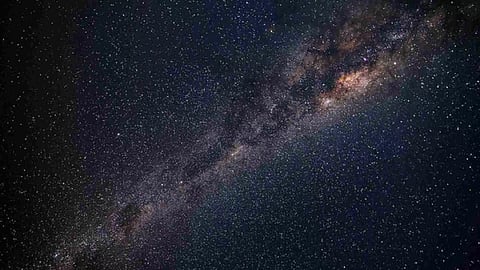

WASHINGTON DC: Designed to investigate some of the universe’s biggest mysteries, the Euclid space telescope, has captured its first glimpses of the cosmos, CNN reported. The spacecraft’s two instruments took the preliminary test images, revealing glittering starry views.
Euclid project manager at the European Space Agency, Giuseppe Racca, in a statement said: “After more than 11 years of designing and developing Euclid, it’s exhilarating and enormously emotional to see these first images.”
“It’s even more incredible when we think that we see just a few galaxies here, produced with minimum system tuning. The fully calibrated Euclid will ultimately observe billions of galaxies to create the biggest ever 3D map of the sky,” Racca said as per CNN. Euclid, the European Space Agency’s newest observatory, has spent the past month since its July 1 launch traveling to its orbital point, located 1 million miles (1.5 million kilometres) away from Earth.
The 4-foot-diameter (1.2-meter-diameter) telescope will remain at what’s known as the sun-Earth Langrangian point L2, also home to NASA’s James Webb Space Telescope, a partnership with ESA and the Canadian Space Agency. Euclid will keep pace with Earth as our planet orbits the sun, as per CNN.
Scientists are already encouraged by the capabilities showcased by Euclid’s initial images, which demonstrate that the telescope may exceed expectations. ESA Director General Josef Aschbacher in a statement said: “It is fantastic to see the latest addition to ESA’s fleet of science missions already performing so well. I have full confidence that the team behind the mission will succeed in using Euclid to reveal so much about the 95% of the Universe that we currently know so little about.”